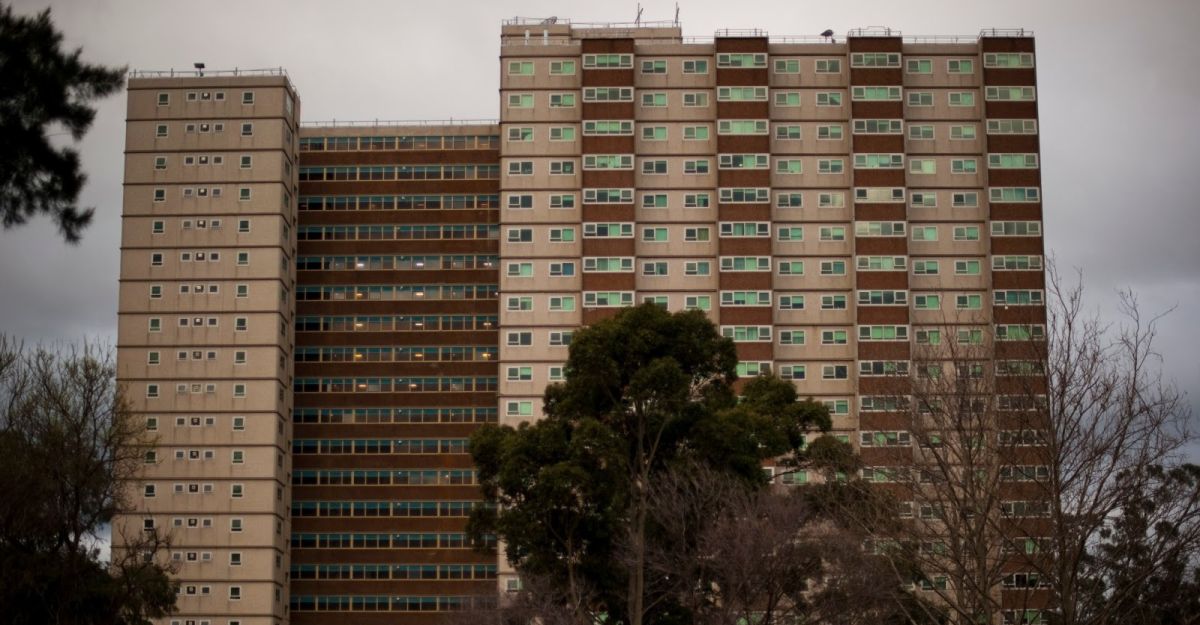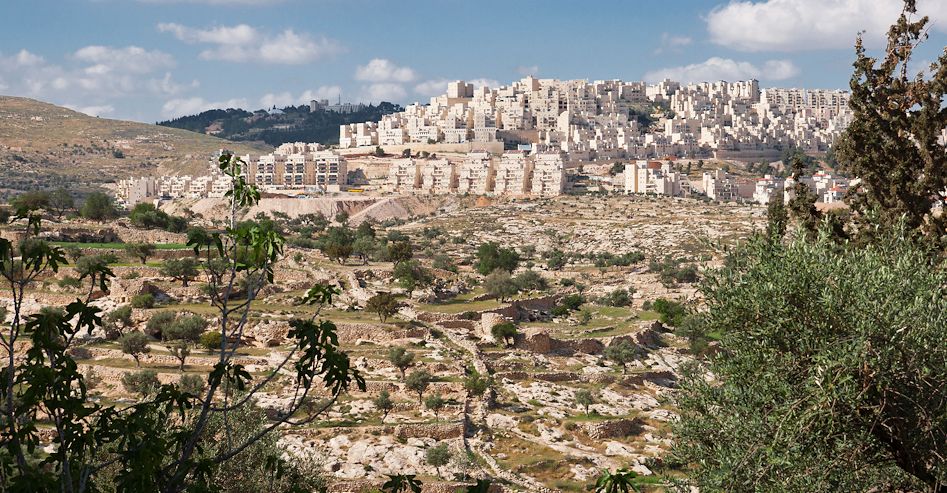It’s been a long time since I’ve had a really good night’s sleep.
Just a few weeks ago, it was anxiety about my job that kept me up in the middle of the night: drafting mental dot points, I was ever-searching for the right combination of words to convince another funding body that my tiny team of community lawyers were doing a good job helping the needy and should continue to be paid to do it. One unexpected benefit of COVID-19 is that I really don’t have to worry about those grant applications anymore. It’s now a foregone conclusion that any money that had been available to niche legal projects will be diverted back into urgent audio-visual upgrades for the courts, personal protective equipment for corrections staff, and soap for prisoners.
These days, I find myself reaching for my phone at 2 am to get an update on the spiralling death rates in Europe and the United States, and from there, onto needless online shopping. During one of my late night internet-wanderings, I deviated from my usual trawling for bespoke local hand sanitiser and mini indoor sports equipment and happened across A Journal of the Plague Year: an Archive of CoVid19. The Melbourne History Workshop have been creating a collective journal to capture the mood of our suddenly changed times. This led me to the free Librivox recording of the book from which the project takes its name: in Daniel Defoe’s 1722 A Journal of the Plague Year, in which a saddler called H.F recounts his life in London during the height of a 1665 outbreak of the bubonic plague.
While my partner slept soundly in our bed, I pressed play. I knew that Stephen Fry reading tales of ancient Greece was a popular choice for lulling other insomniacs back to sleep, and I felt optimistic that the dulcet tones of this older British fellow recounting the trials and tribulations of the long dead would have a similar effect. But despite the author’s meandering tone, and the repetition of painfully long lists of deaths in each London parish, I found myself hooked.
While I was dimly aware that pandemics had killed untold millions throughout history, and that HIV and Ebola still wreak havoc in Africa, I had considered plagues a problem of yesteryear, of little interest to those with access to modern medicine, other than as a reminder of the grim past. But the fact is that our basic human physiology remains unchanged, and the best way to avoid the plague is to stay well away from those infected. As a result, the strategies to combat them have remained virtually unchanged for centuries – from community lockdowns, mass quarantining of ships, the banning of all travel and the enactment of harsh penalties for anyone found to be contravening the rules of the new world order.
As I prowled around our tiny flat looking for domestic tasks to keep me occupied during the first weekend of Stage 3 Lockdown, the Journal was my constant companion. I did the dishes and listened to how rich Londoners fled the city for their country estates at the first sign of trouble. As I dragged an old kettlebell out of the back of the storage cage with the noble plan of doing some squats in the lounge room, I heard about the panic buying of horses, carts and coal. As I lined up outside the café beneath my flat, 1.5 metres apart from the other customers to tap and pay for a coffee, I was living a version of seventeenth-century ‘contactless shopping’, which involved removing your own animal carcass from the hook at the butchers shop before dropping your coins into a nearby pot of vinegar as payment.
Defoe’s account is remarkable for the details that are replicated in our current moment. Just as we have had our liberties curtailed, the British Government enacted draconian measures to limit the spread of the virus. Anyone discovered to be sick was shut up with their entire household for twenty-eight days, a red cross and the words ‘Lord have mercy upon us’ painted on their door. A watchman was placed outside to prevent their escape, the punishment for which was death.
When I’ve been feeling particularly stir crazy at home, I’ve found it comforting to reflect upon how much worse being shut up would have been in seventeenth-century London – without toilets, clean water, air conditioning, Netflix, conference calls and free webchat crisis counselling.
The pandemic hit the poor the hardest, then as now. Back then, it was the journeymen and clothes-makers and tradesmen who lost their jobs first, followed by porters, groundskeepers and maidservants. Now, it’s hospitality workers, arts workers and sessional teachers, followed by airline staff and tour guides. Today, supermarket check-out operators and shelvers have unexpectedly found themselves on the frontline. In 1665 it was butchers, dead cart drivers, gravediggers and the women who were paid a pittance to nurse the sick shut up in their homes. These workers had the highest mortality rates but, as the narrator puts the dilemma: ‘What must I do? I can’t starve. I had as good have the plague as perish for want.’
King Charles II and the rest of the nobility, not known for their concerns about the poor, sent direct aid for distribution to the indigents in the city to prevent unnecessary deaths from starvation, in a move not unlike the Australian Government’s Jobseeker and Jobkeeper schemes. Of those Londoners who had the means to escape before the gates were closed, Defoe writes warmly of their generosity:
It must be acknowledged that the absent citizens, who, though they were fled for safety into the country, were yet greatly interested in the welfare of those whom they left behind, forgot not to contribute liberally to the relief of the poor, and large sums were also collected among trading towns in the remotest parts of England.
We can hope that this time around, we who are less affected by the crisis will spare what we can for the temporary visa holders and undocumented workers who’ve been denied our government’s safety net.
In 1665, there was a proliferation of mystics, astrologers, perfumers and quack doctors profiteering from nonsense remedies, which is uncannily reminiscent of Donald Trump’s promotion of hydroxychloroquine or the direct consumption of disinfectants, and celebrity chef Pete Evan’s claim that his $15,000 ‘Subtle Energy Platform’ – which looks like a multicoloured blender – had ‘a couple of [recipes] in there for the Wuhan coronavirus’.
Further similarities abound. When reflecting upon the problem of asymptomatic carriers of the plague, Defoe writes:
It was very sad to reflect how such a person as this had been a walking destroyer perhaps for a week or a fortnight before that; how he had ruined those that he would have hazarded his life to save, and had been breathing death upon them, even perhaps in his tender kissing and embracings of his own children.
This is what scares me most about COVID-19, not that I might succumb to death myself from the illness, but that I might unknowingly pass it on to older family members and neighbours, literally killing them with attempts at kindness.
Perhaps the most affecting descriptions of London in the 1600s are of the dead-cart drivers picking up bodies throughout the night and the mass graves in which thousands of corpses were burnt, with no time to mourn or commemorate the dead. Defoe’s descriptions of the mass graves near his home, which is now the site of East London’s Aldgate underground station, make disturbing reading. He writes:
A terrible pit it was, and I could not resist my curiosity to go and see it. As near as I may judge, it was about forty feet in length, and about fifteen or sixteen feet broad, and at the time I first looked at it, about nine feet deep; but it was said they dug it near twenty feet deep afterwards in one part of it, till they could go no deeper for the water; for they had, it seems, dug several large pits before this. For though the plague was long a-coming to our parish, yet, when it did come, there was no parish in or about London where it raged with such violence as in the two parishes of Aldgate and Whitechapel.
I recently attended the funeral of my partner’s grandmother, and while it was surreal to only have immediate family members present, set 1.5 metres apart, and painful for her to be denied the comfort of kissing and hugging her family, I can’t imagine how much harder it would have been for them had they not been allowed to have a funeral at all. It’s truly frightening to imagine that this is already happening today in Italy. And mass graves are being dug in many countries as the pandemic spreads.
One positive outcome of the plague highlighted by Defoe was that it brought people together across great social divides and religious schisms. He wrote that
a close conversing with death, or with diseases that threaten death, would scum off the gall from our tempers, remove the animosities among us, and bring us to see with differing eyes than those which we looked on things with before.’ But, alas, ‘as the terror of the infection abated, those things all returned again to their less desirable channel and to the course they were in before.
That is, of course, the challenge of these times. While Prime Minister Scott Morrison told his church congregation in a recent televised prayer that he ‘will be a restorer of streets, with people in them, businesses open again, Australians going about their lives again, returning to their jobs, returning to their livelihoods, returning to normal times in our schools so children can learn, and that we can get to the other side of this,’ it is we, the people, who need to decide if we actually want to return to Morrison’s ‘normal times’.
We might instead learn that our individual fates are inherently bound up in the collective and perhaps, like Defoe, we too might come to regret ‘the return of all manner of wickedness among us’ as this crisis eventually abates. We know that there will be inevitable calls from the neoliberal apparatchiks to slash Centrelink to below poverty rates, and to cancel free childcare. Returning the world to the status quo of crushing inequality, extinction-inducing carbon emissions and the general downward trajectory of everyday life is already their priority. We’ve unexpectedly lived to witness a global economic upheaval, which might turn out to be the greatest in a century. Let’s fight so that one day we might be able write an account of all the long-standing progressive social changes that came about from our generations’ plague year.



